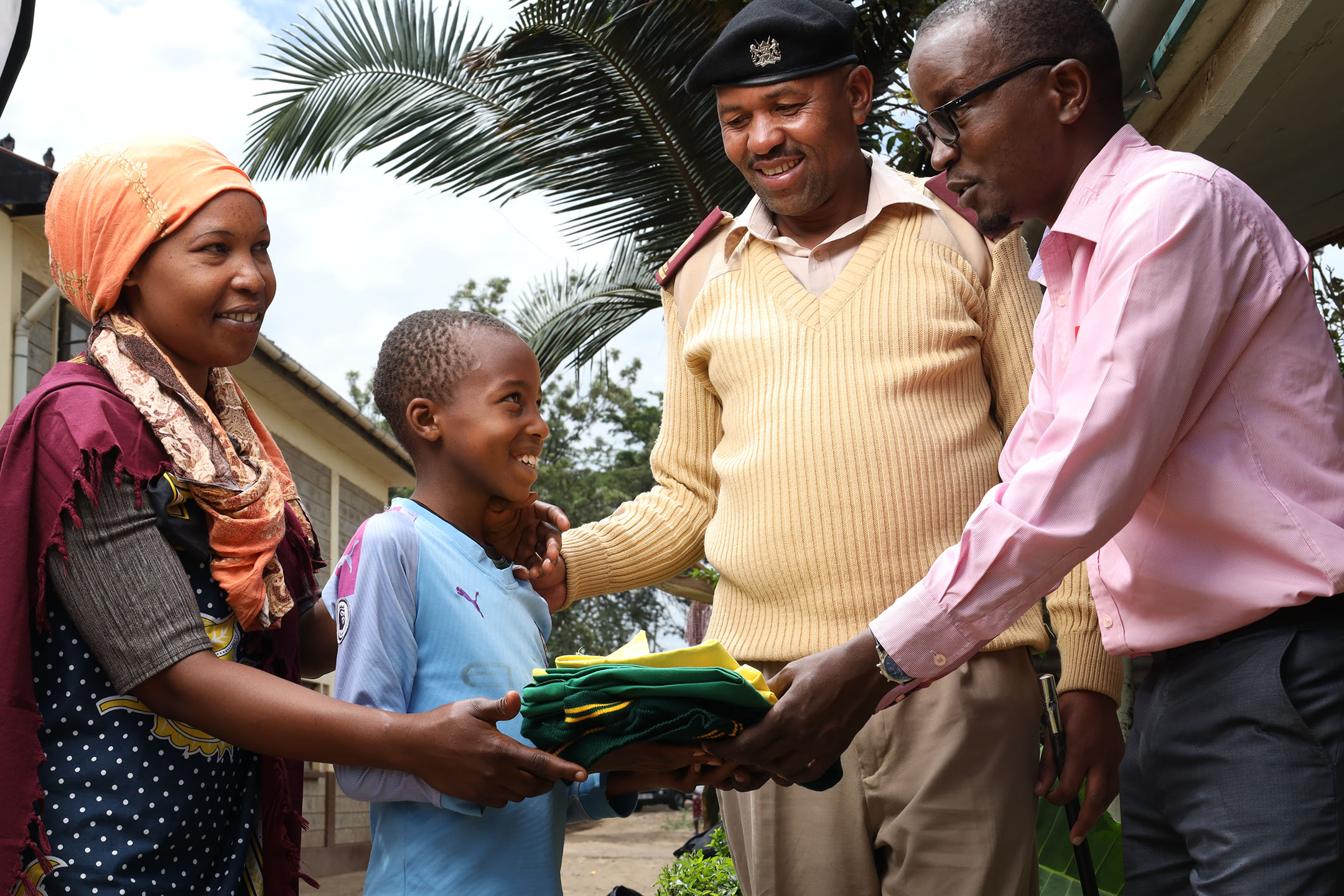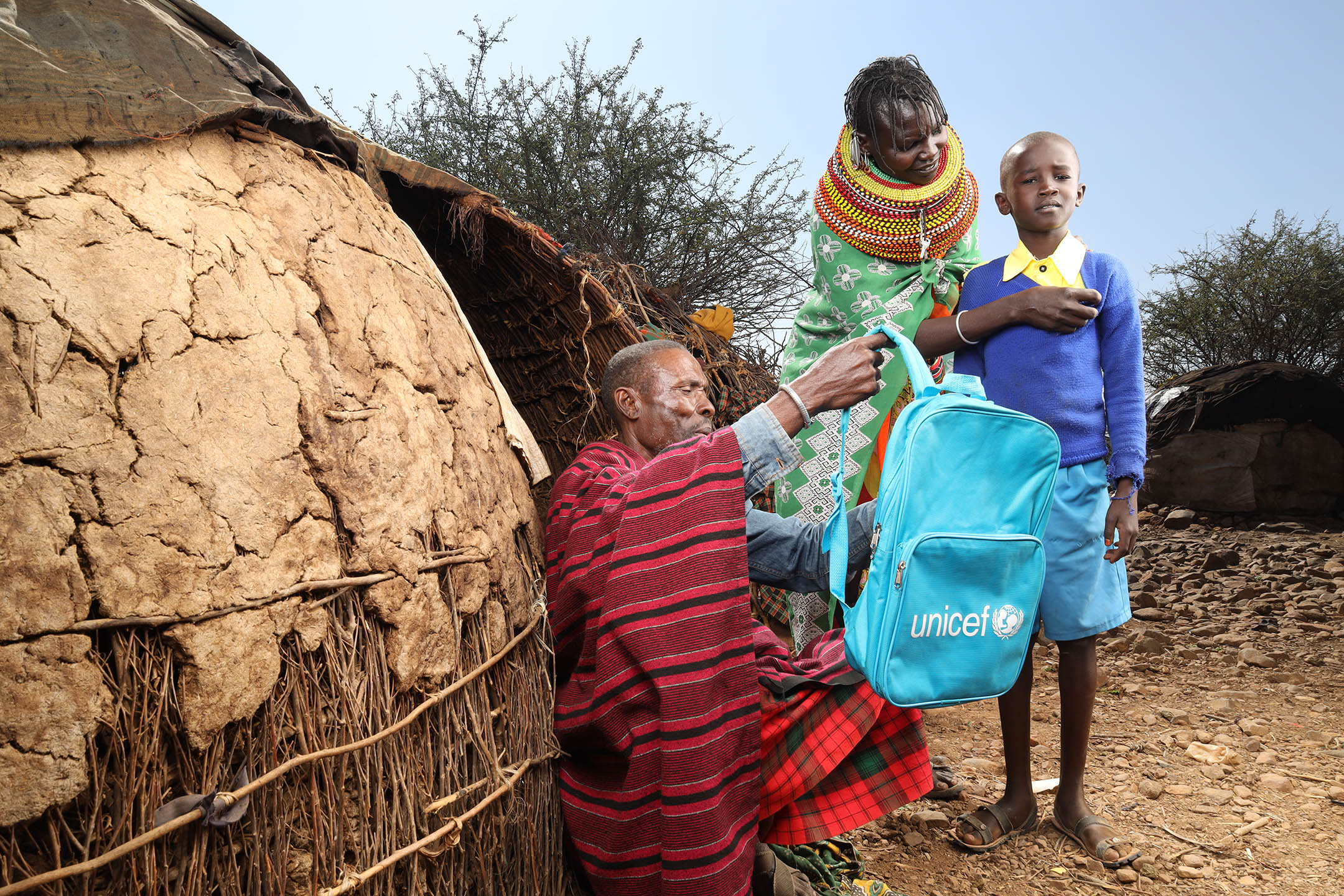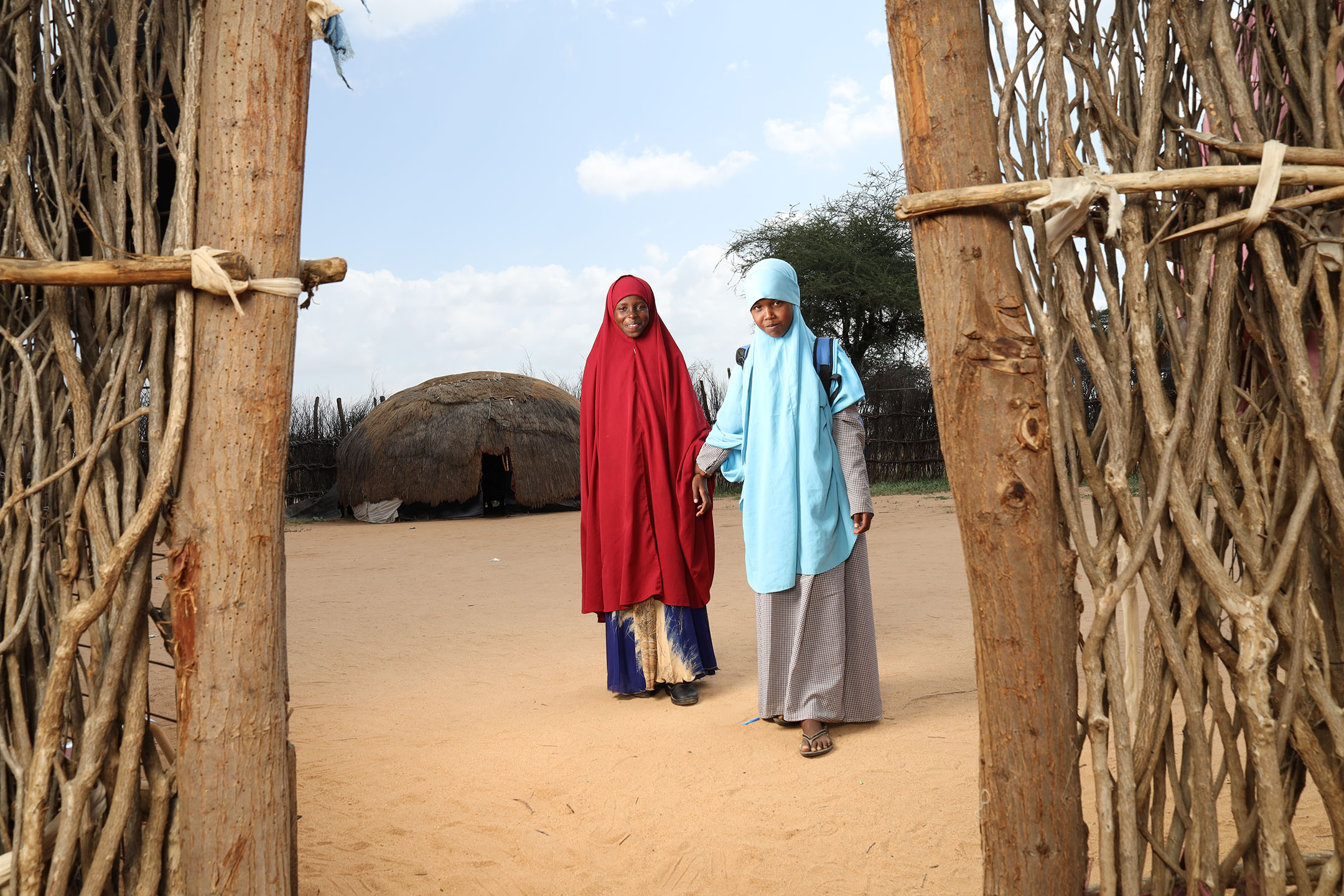Tana River County is in Kenya’s coastal region and played an important role in country’s independence struggle. At Hola, the colonial British government established a detention camp where citizens agitating for independence were thrown in.
More than sixty years since the fulfilment of the independence dream, Kenyan citizens living in Tana River County remain in detention of a different kind: poverty. A 2004 study found the county to be 79 per cent food insecure with a poverty incidence of 62 per cent. The impact of this grinding poverty is most pronounced in the community’s most vulnerable members: children. Many are out of school.
“Poverty has created a state whereby education does not rank highly in the minds of a significant number of parents. They are fighting to just stay alive,” says an official of the Child Welfare Society of Kenya (CWSK) who did not wish to be named. “However, some areas are more impacted than others. In Garsen’s Malakote area, among the Nyoyaya tribe, the situation is a complete nightmare. The number of out-of-school children is shocking. And the main reason is poverty.”
These claims are supported by Mr Hamisi Shambaru, the Assistant Chief of Chira Sub-location in Garsen Division in Tana Delta Sub-County. The government official attributes the runaway school drop-out and low enrolment rates to three causes: poverty, illiteracy and early marriage. Says he: “Poverty has torpedoed our efforts at getting children to attend school. Education in public schools is supposed to be shared 50-50 between the government and parents. But when children are sent away from school for lack of uniform or small monies like sh 100 for one project or another, parents are unable to raise the amount. So the children stay home and just drift away from school.”
“Poverty also implies that parents have to weigh the priority of providing food for their families against the cost of taking children to school. Education becomes secondary when survival is threatened.”

The government official attributes the runaway school drop-out and low enrolment rates to three causes: poverty, illiteracy and early marriage. Says he:
“Poverty has torpedoed our efforts at getting children to attend school. Education in public schools is supposed to be shared 50-50 between the government and parents. But when children are sent away from school for lack of uniform or small monies like sh 100 for one project or another, parents are unable to raise the amount. So the children stay home and just drift away from school.” Poverty also implies that parents have to weigh the priority of providing food for their families against the cost of taking children to school. Education becomes secondary when survival is threatened, the chief says. A corollary of this is that children have ceased to believe in education. They loudly question the need to take a step towards school, knowing they would be sent back home and their parents would be unable to return them to school. They feel played like ping-pong. Consequently, they choose to turn their backs on schooling.
In the midst of this despondency that’s on the verge of becoming a culture dropped the “Come Twende Shule” campaign, beaming across the airwaves through Vox and TBS radio. Come Twende Shule (Come Let’s Go to School) is a return-to-school initiative of UNICEF, the Government of Kenya, Educate A Child, and NACONEK under the implementation of the Centre for Behaviour Change and Communication, that targets children. The initiative has stirred up the community. Together with the tireless work of the chief and other local officials, the broadcasts have resulted in several children returning to school. “We had a special case of four children – three girls and one boy – who dropped out of school,” the chief says. “I took them to the CWSK. One girl completely refused, saying she wanted to get married. She did. She was 19, so we couldn’t force her. Another dropped out until this moment. Two, Dokota Omar and Saumu Mohammed Abalon, have gone back to school. That is course for celebration.”
Officials at the CWSK say 13-year-old Dokota Omar is in grade 3 at Bilisa Primary School in Bilisa village and enjoying learning. “It has taken a lot of work to get his mind back to learning,” the officials say. “He was found to be stubborn, with a vibrant dislike for school. He is not out of the woods yet but with plenty of focused counselling, he seems to be calming down and beginning to enjoy class.”
Tana River desperately needs “Come Twende Shule.” The local community was recently heartbroken when two youngsters sent away from school joined a group of other children who were going to graze cattle. On the way they got overwhelmed by the coastal heat and hunger. “After a period of intense searching, we recovered their bodies intact but lifeless under a tree in the bushes where they had apparently fainted,” chief Shambaru says. “We are asking for help.”



